#Dilar Dirik
Explore tagged Tumblr posts
Text

Published in October, The Kurdish Women's Movement by Dilar Dirik. I'm a co-translator. The book is an interesting and inspiring read!
4 notes
·
View notes
Text

Project2025 #CorpMedia #Oligarchs #MegaBanks vs #Union #Occupy #NoDAPL #BLM #SDF #DACA #MeToo #Humanity #FeelTheBern
JinJiyanAzadi #BijiRojava Can the Kurdish Women’s Movement Transform the Middle East? [UPDATES]
We’re all familiar with the orientalized, fetishized image of the Kurdish warrior woman doing battle against ISIS. Part Amazon, part Angelina Jolie, she’s all too easily sanitized, Westernized, and plucked out of her context in the militant, women-led Kurdish liberation movement. In The Kurdish Women’s Movement: History, Theory, Practice, Kurdish academic Dilar Dirik aims to deepen and complicate this image, placing that movement in the context of decades of checkered, often-overlooked “History,” a unique historic and sociological “Theory,” and a “Practice” claiming to touch the lives of millions of women across the Middle East…

RELATED UPDATE: Dear Men of the West, Look to the Middle East for Lessons in Feminism

RELATED UPDATE: Zîlan Vejîn: Newroz is a revolt against injustice and oppression

RELATED UPDATE: Hozat: People should take a stand against Turkey genocidal policies

RELATED UPDATE: Şîrîn Mihemed serves the Rojava Revolution with her pen and voice

RELATED UPDATE: Zilan Women's Festival: We are building a new life

RELATED UPDATE: HBDH militia sabotage a factory in response to the usurpation of people’s will in North Kurdistan
19 notes
·
View notes
Text

𝗢𝗡 𝗔𝗜𝗥 - Tuesday 5 November at 7:00 pm (CET) - usmaradio.org
USMA for radioart106
𝗧𝗛𝗘 𝗠𝗜𝗗𝗗𝗟𝗘 𝗘𝗔𝗦𝗧 𝗣𝗥𝗢𝗧𝗘𝗦𝗧𝗦 - 𝗠𝗜𝗫𝗧𝗔𝗣𝗘 (𝟮𝟬𝟮𝟬) [58 min.]
Playlist:
1. Robert Wyatt - ‘dondestan’ (dondestan 1991)
2. Valerie Vivancos - ‘Restless till Kairos’ feat. Bernard Clarke
and Dinah Bird. Words by Dareen Tatour (#poemontrial 2018)
3. Miranda De La Frontera - ‘Dear Viyan’ feat. Viyan Peyman
and Dilar Dirik (Music, Awareness & Solidarity w/ Rojava Revolution.
female:pressure compilation 2016)
4. Ramy Essam - ‘Ah Ya Balad’ رامى عصام - اه يا بلد (2014)
5. Meira Asher & Guy Harries - ‘Torture Bodyparts’ (Infantry 2001)
6. Dareen Tatour - ‘Freedom’ حُرِّيَّة (The Last Invasion 2010)
7. Muqata’a - Akher Kilmeh أخر كلمة (Hayawan Nateq حيوان ناطق 2013)
8. Dam - JASADIK HOM جسدكهم (BEN HAANA WA MAANA 2019)
9. Olivia Louvel - Afraid Of Women (Music, Awareness & Solidarity w/ Rojava Revolution. female:pressure compilation 2016)
10. Ramy Essam - Prison Doesn't Kill. The Last Letter of Shady Habash السجن مابيموتش رسالة شادي حبش الأخيرة (2020)
11. Raja Meziane - Allo le Système! (2019)
12. Meira Asher & Guy Harries - The School (Infantry 2001)
13. Dam - Jerusalem Al Quds (2018)
14. Muqata'a - Mish Aktar مش اكتر
(Singles 2020)
15. Sote - Holy Error (Sacred Horror In Design 2017)
0 notes
Text

performingborders e-Journal #2 Rallying The Commons
Curator, Producer
Rallying the Commons is here – we couldn’t be more excited to share our second e-journal!
READ the e-journal HERE
The performingborders e-journal is a space to reflect on borders, live art, community, and resistance. Centering embodied knowledge and artists’ imagination as a space of knowledge production, the e-journal is a site to nourish and connect thinking and working practices. The theme of this year’s journal: Rallying the Commons stems from the process of rallying together, of commoning and communing, for the creation of something better and the maintenance of other ways of being. It is a movement away from disembodied discourse towards actions and gestures that let us consider what we can do when we harness our resources, time, bodies, and care, to collectivize them.
In the e-journal, you’ll find contributions from artists and activists working across cultural and political spaces. We are excited to share sonic listening rituals by Ximena Alarcón-Díaz and Sheila Ghelani’s tender reflections on care in the art sector. Helena Walsh reflects on the role of feminist organising and art activist groups within an Irish context. Harun Morrison shares his collaboration with horticulturist Antonia Couling and their work The Anchor, The Drum, The Ship.Elif Sarican and Dilar Dirik write on hevaltî- revolutionary friendship reflecting on the Kurdish Women’s Movement. Lara Khaldi from The Question of Funding shares with us community-centered funding models and the use of Dayra within their project in Palestine. And we close with a Budget Commission by Jack Ky Tan who has been reflecting with us on budgets, value systems and thinking beyond numbers. We hope that within these words, sounds, images, and gestures you find echoes of resistance that allow us to continue the necessary work of imagining other worlds.
performingborders e-Journal #2 Rallying The Commons
Curated and Edited by Xavier de Sousa, Anahí Saravia Herrera and Alessandra Cianetti. Designed by Rodrigo Nava Ramírez Social Media and Design support: Anna Corfa
Thank you to our friends at the Necessity Fund and to Arts Council England for supporting this work.
0 notes
Text
Exploration list #58
Some things to read, watch or listen to, and then ponder.
Edward the Dyke and other poems by Judy Grahn (x) [book].
Marilyn Frye on separatism and power (x, with a caveat) [essay].
All men are men, as pointed out by Janice Turner (x) [article].
A lesbian writing on womanhood and detransition [essay].
Magdalen Berns on misgendering, violence and law [video].
“Feminist pacifism or passive-ism?“, by Dilar Dirik [essay].
19 notes
·
View notes
Photo

Rapimenti, stupri, torture: così Erdogan combatte le partigiane curde Un anno fa erano le eroine da “esibire” nei salotti mediatici o sulle copertine di riviste patinate. Per la loro bellezza, prim’ancora che per la loro determinazione nel combattere per la libertà. Ora su di loro e su la loro lotta è calato il silenzio. Non fanno più notizia. Per molti, non per Globalist. È passato un anno da quando Hevrin Khalaf è stato uccisa lungo un'autostrada nel nord-est della Siria, trascinata per i capelli, picchiata e uccisa a colpi di arma da fuoco da mercenari. Le foto del suo corpo mutilato sono poi apparse sui social media, in quello che molti hanno detto essere un chiaro messaggio delle forze armate turche della regione: questo è il prezzo che pagheranno le donne curde che hanno combattuto per la liberazione. ...a morte della sua amica. E da allora le cose sono solo peggiorate, aggiunge. “La vita pubblica delle donne nella regione è diventata "invivibile", riassume Dilar Dirik, attivista e ricercatrice curda dell'Università di Oxford. Nelle chat e sui social network rimbalzano le immagini terribili di combattenti curde catturate, trascinate per i capelli e violentate dai soldati turchi o dai miliziani siriani prima di essere finite con un colpo alla nuca. I rapimenti di donne sono diventati così comuni che il progetto "Missing Afrin Women Project" ha lanciato un sito web all'inizio del 2018 per rintracciare le segnalazioni di sparizioni nella città di Afrin: dal maggio 2018 sono stati registrati 6.000 rapimenti, tra cui 1.000 donne, un rapporto di Kongra Star rivendicato in agosto. ...Una recente commissione d'inchiesta del Consiglio dei diritti umani dell'Onu sulla Siria ha evidenziato un aumento della "violenza sessuale e di genere contro le donne e le ragazze" in Siria nella prima metà del 2020. Il rapporto ha documentato che almeno 30 donne nella città curda di Tal Abyad sono state violentate nel solo mese di febbraio. "Un ex giudice ha confermato che i combattenti dell'esercito nazionale siriano sono stati accusati di stupro e di violenza sessuale durante le incursioni nelle case della regione. Tuttavia, nessuno di loro era stato condannato, ma era stato rilasciato dopo pochi giorni", osserva il rapporto. ...Swed sostiene che le forze turche "prendono di mira soprattutto le donne, come è stato evidente nel brutale attacco alla martire Khalaf". Nell'anno successivo all'omicidio, gli episodi di grave violenza contro le donne si sono trasformati in ciò che gli attivisti e i dirigenti curdi decantano come una vera e propria campagna di violenza sessuale e di assassinii mirati di figure femminili di spicco. ...la Turchia sta prendendo sistematicamente di mira le donne attiviste e i politici che sono stati in prima linea nell'organizzazione politica del Paese, usando la giustificazione che sta "neutralizzando i terroristi". Molte delle vittime femminili sono state anche mutilate con le foto dei loro corpi esposte sui social media. "Una cosa è uccidere qualcuno in guerra, ma quello che succede qui è che vanno a spogliare il corpo della donna morta e poi lo filmano e lo fanno circolare", afferma Dirik. "E' per dire: Guarda, qui stiamo disonorando la donna", aggiunge. ... Umberto De Giovannangeli
52 notes
·
View notes
Text
more people should read “The Kurdish Women’s Movement: History, Theory, Practice” by Dilar Dirik. it’s really academic (and took me Forever bc of it), but it’s so valuable when it comes to explaining not only the history of the Kurdish freedom/people’s movements, but also showing an example of an (already in-use) alternative to the nation-state system, the pointlessness of liberal/mainstream feminism, the role of Europe & the US (&their nation-states) in the rise of terror groups & feminicide in W. Asia, and tons and tons of other things
1 note
·
View note
Text
auDeƒenze
https://rec-on.org/audefenze.html
agf & porya hatami : auDeƒenze
⟱
roarjava ◜◡ ◟ ◝ {rojava} ◠ ◦ ◯
0:00
sarapo ◦ ● ◖ READ ◗ ● ◦
0:00
OP 622526 ◔ ● ∂ƒ¸˛√ ● ◕
0:00
jineoloji ◦ ● ◖ by Dilar Dirik ◗ ● ◦
0:00
H20 ◔ ● img ● ◕
0:00
download: auDeƒenze reader .pdf
request .wav zip album here ( @ )
◦ reading list ◦
#LandBacknowledgement
/ * LISTENING POLITICAL SOUND GLOBAL * /
◦ ◝ index
_ tw _
( @ )
0 notes
Text
Week 4: 20th Oct: Antye Greie
I related to Antye Greie's work as she brings the inseparable collaboration between art and politics into her sonic art expression.
Sound camps Sonic wild code sonic wilderness
Feminism uncovering forgotten women in sound
Improvisation piece wanted to make something rhythmic
Line of women in the rice field 2018 lovely gentle noises cricket, bell and other sounds textures and tones. Filmed this piece then performed it later live on stage. She wrote a few chapters about sonic interventions and sonic wildness.
On vimeo
“treeing”Hanoi vietnam 2019 middle of city meditating around an ancient tree
She has done 20 masterdome improvisations
Did a
Blueberry sonic experience aking recording equipment out of mushrooms and other forages
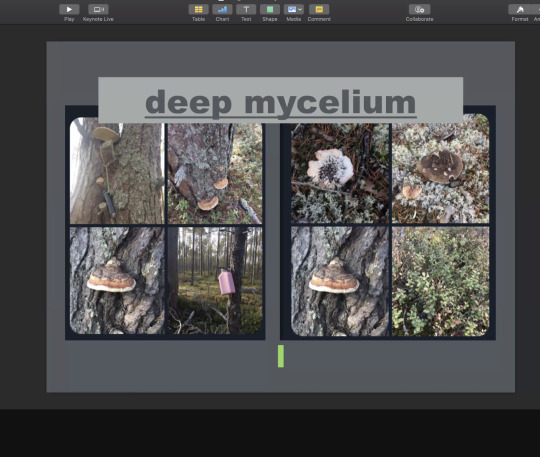

Moving away from growing frequencies apart growing
Using frequency improvisation links this to buddhism 2016 piece got people to use voice and body.
below she did a political art piece by applying female pressure and awareness and solidarity campaign for the cantons of Rojava in northern Syria
Antye Greie-Ripatti aka AGF has curated a female:pressure campaign called #Rojavato raise awareness and show solidarity to the cantons of Rojava, in northern Syria. Hoping to promote social, racial and ethnic justice, gender, religious freedom, ecological principles.
3.
Ryoko akam 2013
Went to a nuclear power plant making a spell to bewitch this place. she then moved onto introduce feminism and intersectional space and identity.

Her piece sound suspension a rerun of her walk
Methods of gathering people
Critical body Kubra Khdemi Afghan woman
Intersectional feminism inequality between women, passports, women and sexuality, women and class, women and LGBTI issues. women and race.
Conditions, legal rights, sonic concepts were using bodies in space, holding,
Human noise
Humming. How to collaborate or interact from a privileged position how can we help, she asked the audience hoe can we help, how do we tackle these inequalities
Microphones
Worked with contact mic she ran over their body, the mic doesn't care about gender, sex
The colour of skin. The collective humming intervention
She is working on an idea below Position, Composition and sound


Build space called recon.org to commission on this site
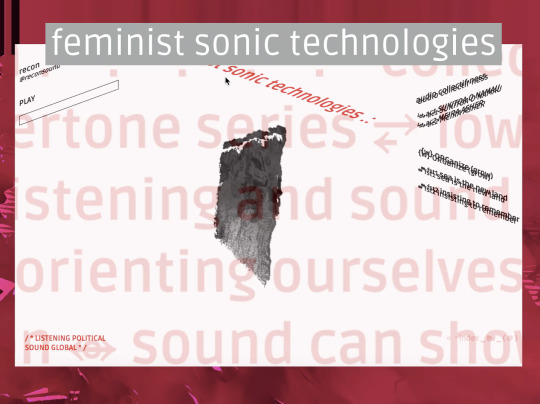
A layered embodied experience
In opposition to her and her desire to expose everything she is interested in
Female pressure eclectic indigo vienna 3000 off social media network
Campaigned for visibility, gender sex studies to try and change sound field
In terms of gender
Antye Greie interviewed Lastesis about their performance and sound.
"What began as a crowd of blindfolded women chanting in the Chilean port of Valparaiso* turned into a global movement to fight domestic and institutionalized sexual violence."
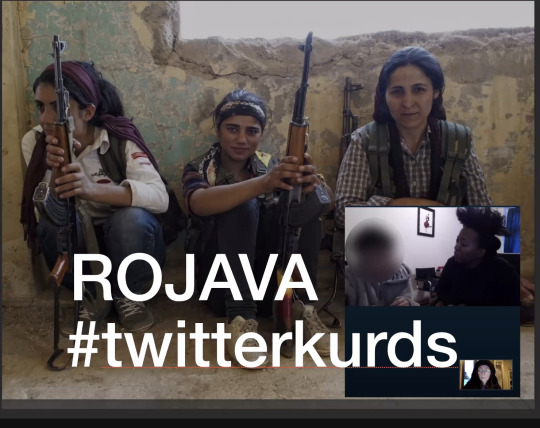
Women fighters in sierra
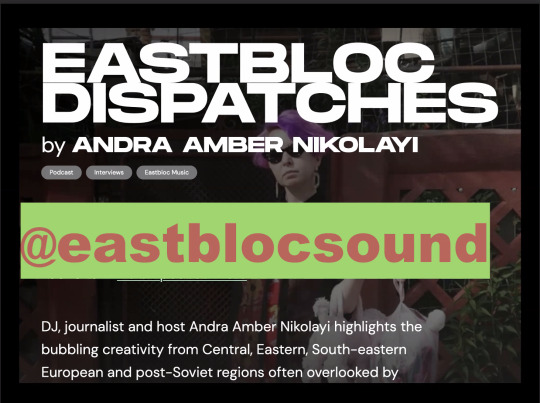
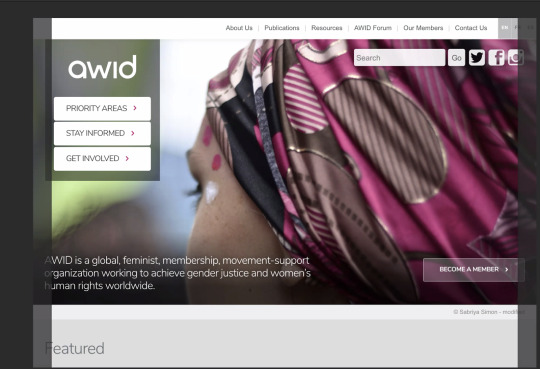

#l̊i̊s̊t̊e̊n̊ to rec-on.org archive#direct links -> quick access to all episodes#https://rec-on.org/index-sitemap.html#NEW#landbacknowledgement#https://rec-on.org/landbacknowledgment.html#↹ audeƒenze#AGF & Porya Hatami - Sanandaj#Iran#https://rec-on.org/audefenze.html#FEMINIST SONIC TECHNOLOGIES#feministsonictechnologies#https://rec-on.org/feministsonictechnologies.html#!!! strike/ huelga/ streik/ lakko!#with aylu & agf feat. Constanza Castagnet#Buenos Aires#Argentina#https://rec-on.org/STRIKE!.html#↟ BaTonga Exist#by Lindatumune Nyono Mudimba#rural Zimbabwe#https://rec-on.org/BaTongaExist.html#⟳ SOIL MAtris{x} ⥰⥰⥰#Women defend the earth#by Aly Cabral#Manila#Philippines#https://rec-on.org/soilmatrix.html#+ reader: https://rec-on.org/pdf/fst07_SoilMatrix__AlyCabral_reader.pdf#✦ JIZINGATIE MWENYEWE
0 notes
Photo

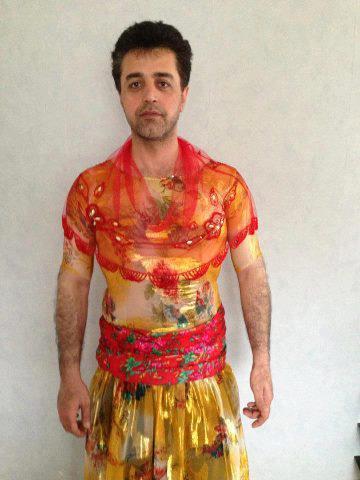
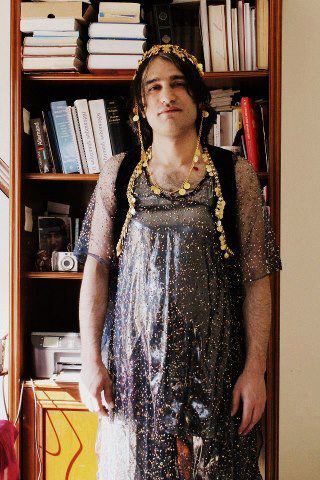
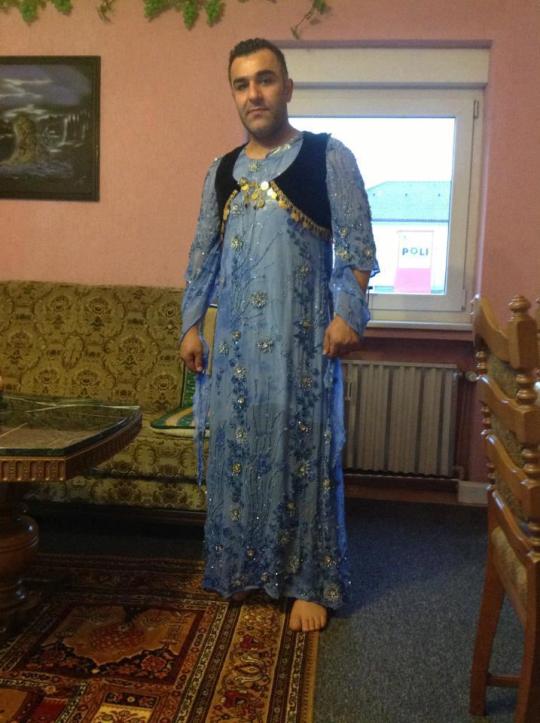
Hats Off (But Dresses On) to Our Kurdish Feminist Brothers 5/3/2013 by
DILAR DIRIK
A remarkable and unusual sort of civil disobedience has been triggered in Marivan, a city in the Kurdistan Province of Iran. On April 15, an Iranian court in the city forced a male convict to wear traditional Kurdish women’s clothes in public, perceiving it as a humiliating punishment. Kurdish feminists of the Marivan Women’s Community protested against this misogynistic decision on the streets of Marivan in red traditional clothes, similar to the Kurdish bride robe that the convicts had to wear, and they were confronted by violent security forces.
Then, in solidarity with the women, Kurdish men took an extraordinary initiative by dressing as Kurdish women and posting their photos on social media.
In a café in the heart of Frankfurt, Germany, my friend Çiğdem and I enjoyed tea with Masoud Fathi and Dler Kamangar, two of the feminist men behind this campaign, which has made international news.
Masoud Fathi is a poet, journalist, political activist—and feminist. He is from Marivan, a city known for its disobedience and resistance. He had his friend Dler take a photo of him wearing an authentic, grass-green Kurdish woman’s robe, and posted it on his Facebook page, adding the sentence that became the slogan of the campaign: “Being a woman is not a tool to humiliate or punish anyone”.
Soon, some friends joined this brave statement by taking pictures of themselves in women’s dresses. Within a week, the Facebook page “Kurd Men for Equality” gained over 13,000 fans. Women and men from other parts of Kurdistan, Europe and America expressed their solidarity and shared commitment to gender equality with their own photos.
How did Masoud feel when he put on this impressive green dress?
When I wore that dress, I suddenly realized how much evil the chauvinist thinking of men, male-dominated religions, ideologies and systems have caused. I understood that masculine culture has destroyed the world.
The pictures on Facebook are as diverse as the Kurdish nation: A cute, smiling little boy in red challenges patriarchy the same way as a mature, serious-looking man with thick glasses in a delightfully charming dress. Some women are dressed in Kurdish men’s clothes, some of them stand next to male friends who wear flashy dresses with pride. One mother in a traditional men’s outfit stands confidently alongside her adolescent son, who smiles in a bright-blue, shimmering woman’s gown. Some men covered their faces to escape persecution by the Iranian regime.
Sasan Amjadi, a contributor to this project and a friend of Masoud and Dler’s, says,
The Iranian regime is fascist, and it is almost inevitable that this affects the society, which leads parts of the Iranian population to accept the regime’s beliefs. Perhaps 40 percent of the population does not believe in women. I did not feel any strangeness when I put on a woman’s dress. I just wanted to demonstrate who we were: This is what we look like, this is our culture and they cannot insult our culture, our mothers and sisters. We cannot accept that. … There can be no free society without free women. It is in the responsibility of men to end this culture of male hegemony.
Men in Western societies have also resorted to wearing women’s clothes in order to challenge gender discrimination. Even the most democratic societies struggle with rape culture, sexism, homophobia and transphobia. Violence against women is a global epidemic. If tabooizing and controlling women’s bodies and behaviors in the name of honor is the sexism of one society, the porn industry, prostitution and unhealthy beauty standards make up the other end of the patriarchal spectrum that devaluates women by reducing them to objects of men’s pleasure or property. Cross-dressing is an effective way of challenging binary notions of gender and raising awareness of issues that human beings who are not male and heterosexual encounter on a daily basis.
However, the case of Kurdish men wearing Kurdish women’s clothes is even more special, because it attacks two forms of oppression at the same time. This “punishment” is not only sexist; it further constitutes an attempt to ridicule Kurdish culture. The Islamic Republic of Iran has executed at least 56 Kurds in the past year. It continues to enforce oppressive annihilation policies towards the Kurdish people and other ethnicities, or against any dissident voice, for that matter. While the misogynist regime forces women to cover in black cloth, traditional Kurdish (and of course traditional Persian) women’s clothes are very colorful and beautifully embroidered pieces of detailed handwork. The meaning of these sequined, extravagant robes on Kurdish men is a double strike against a regime that covers, hides and silences women in plain black, discriminates against different ethnicities and believes that being an oppressive despot defines masculinity and power. After all, chauvinist concepts of gender and abusive power structures are inseparable.
But while the Iranian authorities attempted to shame male prisoners by making them wear traditional Kurdish women’s clothes, Kurdish men formidably responded by standing up against both sorts of oppression. They made two statements in one: Being a woman is NOT a punishment—and our culture is beautiful. Not being a woman, but being sexist is degrading. Not Kurdish clothes, but racism is humiliating.
Dler Kamangar, a talented musician from the beautiful East Kurdish city of Sine, agrees with Masoud that this Facebook action is just one small step in the right direction. Though media and public attention are important, future steps must be more practical, and not just remain in the social media sphere. As he drinks his black tea, he tells me that they are currently planning protest actions in front of Iranian embassies. They will appear in women’s clothes. Dler’s skepticism of the Iranian regime is surpassed by his optimism for the Kurdish people’s struggle:
I do not wait for a reform by the Iranian regime. We need to work against the negative structures in our own communities and societies. In the end, we are by ourselves. We must come up with our own solutions.
Like Dler, Masoud considers himself a feminist. He has written columns about women’s rights and men’s duty to actively challenge the male-dominated system. In his words,
Women are part of our personality, our character. If we oppress one part of our character, we oppress ourselves. If one part of us is unfree, our whole cannot be free either.
While the regimes of Turkey, Iran, Iraq and Syria oppressed the Kurds ethnically and created hyper-masculinized forms of warfare and oppression, the Kurds have often responded with feminism. One unifying slogan echoes around all four parts of Kurdistan: “No free society without free women.” A liberated Kurdistan is, and must be, measured by women’s emancipation.
Speaking from a Kurdish woman’s perspective, my dear friend Çiğdem Orhan, a young philosophy student from Karakocan, Elazig in North Kurdistan, who is socially active in our community in Germany, adds:
This action is very meaningful and powerful, because it was started by men who stand up for women’s rights. This illustrates that women’s rights is a societal phenomenon that involves all of society, not just women. These men prove courage in overcoming their “inner man” when putting on dresses, taking pictures and posting these for the world to see. They don’t just mentally stand up for women’s rights, but do so literally in a physical sense.
The Iranian regime’s intention to signify honorlessness, embarrassment, humiliation and degradation by using womanhood has completely failed.
Crossposted from the Kurdistan Tribune
Source
https://msmagazine.com/2013/05/03/hats-off-but-dresses-on-to-our-kurdish-feminist-brothers/
1 note
·
View note
Photo

Rapimenti, stupri, torture: così Erdogan combatte le partigiane curde Un anno fa erano le eroine da “esibire” nei salotti mediatici o sulle copertine di riviste patinate. Per la loro bellezza, prim’ancora che per la loro determinazione nel combattere per la libertà. Ora su di loro e su la loro lotta è calato il silenzio. Non fanno più notizia. Per molti, non per Globalist. È passato un anno da quando Hevrin Khalaf è stato uccisa lungo un'autostrada nel nord-est della Siria, trascinata per i capelli, picchiata e uccisa a colpi di arma da fuoco da mercenari. Le foto del suo corpo mutilato sono poi apparse sui social media, in quello che molti hanno detto essere un chiaro messaggio delle forze armate turche della regione: questo è il prezzo che pagheranno le donne curde che hanno combattuto per la liberazione. ...a morte della sua amica. E da allora le cose sono solo peggiorate, aggiunge. “La vita pubblica delle donne nella regione è diventata "invivibile", riassume Dilar Dirik, attivista e ricercatrice curda dell'Università di Oxford. Nelle chat e sui social network rimbalzano le immagini terribili di combattenti curde catturate, trascinate per i capelli e violentate dai soldati turchi o dai miliziani siriani prima di essere finite con un colpo alla nuca. I rapimenti di donne sono diventati così comuni che il progetto "Missing Afrin Women Project" ha lanciato un sito web all'inizio del 2018 per rintracciare le segnalazioni di sparizioni nella città di Afrin: dal maggio 2018 sono stati registrati 6.000 rapimenti, tra cui 1.000 donne, un rapporto di Kongra Star rivendicato in agosto. ...Una recente commissione d'inchiesta del Consiglio dei diritti umani dell'Onu sulla Siria ha evidenziato un aumento della "violenza sessuale e di genere contro le donne e le ragazze" in Siria nella prima metà del 2020. Il rapporto ha documentato che almeno 30 donne nella città curda di Tal Abyad sono state violentate nel solo mese di febbraio. "Un ex giudice ha confermato che i combattenti dell'esercito nazionale siriano sono stati accusati di stupro e di violenza sessuale durante le incursioni nelle case della regione. Tuttavia, nessuno di loro era stato condannato, ma era stato rilasciato dopo pochi giorni", osserva il rapporto. ...Swed sostiene che le forze turche "prendono di mira soprattutto le donne, come è stato evidente nel brutale attacco alla martire Khalaf". Nell'anno successivo all'omicidio, gli episodi di grave violenza contro le donne si sono trasformati in ciò che gli attivisti e i dirigenti curdi decantano come una vera e propria campagna di violenza sessuale e di assassinii mirati di figure femminili di spicco. ...la Turchia sta prendendo sistematicamente di mira le donne attiviste e i politici che sono stati in prima linea nell'organizzazione politica del Paese, usando la giustificazione che sta "neutralizzando i terroristi". Molte delle vittime femminili sono state anche mutilate con le foto dei loro corpi esposte sui social media. "Una cosa è uccidere qualcuno in guerra, ma quello che succede qui è che vanno a spogliare il corpo della donna morta e poi lo filmano e lo fanno circolare", afferma Dirik. "E' per dire: Guarda, qui stiamo disonorando la donna", aggiunge. ... Umberto De Giovannangeli
0 notes
Video
tumblr
New World Summit: Stateless State. Dilar Dirik (Kurdish Women's Movement) | Stateless Democracy: How the Kurdish Women Movement Liberated Democracy from the State Kurdish Women's Movement Dilar Dirik Chaired by: Maria Hlavajova (BAK, basis voor actuele kunst, Utrecht) Dilar Dirik is an activist of the Kurdish Women’s Movement and a PhD candidate in the Sociology Department of the University of Cambridge. Her work examines the role of women in the Kurdish liberation movement, by comparing the ways in which the commitment to gender equality of different Kurdish parties is related to their stance on institutions of power. This lecture addresses the role of the Kurdish Women’s Movement in emancipating the project of national liberation within Kurdistan. Dirik will specifically address how the Kurdish Women’s Movement opposes the violence of states, but also that of male patriarchal domination. Understanding the overarching systematic oppression of society as perpetuated by the capitalist, nation-state-oriented, dominant world order, has brought the Kurdish Women’s Movement in opposition of the concept of the state. Here, the state is seen as a replication of patriarchal relations, which they believe can only be undermined through principled gender equality in radical democratic confederalism beyond power, nationalism and the state. The New World Summit: Stateless State took place at the Royal Flemish Theater in Brussels, Belgium, 19-21 September 2014
0 notes
Quote
Self-defense must thus not only fight against, but also for something, especially in the Middle East, where all forms of violence are performed on an unbearable scale. Thus, self-defense is the radical attempt at dissociating power from the patriarchal militarist system - and women must be the avant-garde militant self-defense of a self-determining, more beautiful, just, free life. Self-defense, accompanied by revolutionary thought, has the potential to bring about radical social change.
Dilar Dirik http://www.telesurtv.net/english/opinion/Kurdish-Womens-Radical-Self-Defense-Armed-and-Political-20150707-0002.html
2 notes
·
View notes
Video
youtube
This week on Act Out, a special interview with Dilar Dirik on the Rojava revolution: the roots of resisting war while building an egalitarian, feminist, flat structure society in Northern Syria. First up tho, there are some upcoming actions that you need to know about.
(via ActOut! [118] - Syria: Let the Kurdish Women Lead the Way + Team Internet & Israeli Arms - YouTube)
4 notes
·
View notes
Photo

Radikal demokrasi: Faşizme karşı ön cephe Dilar Dirik Eğer bütün sömürgelerin en eskisi olan kadınların köleleştirilmesi başarılamasaydı; faşizm de mümkün olamazdı. Bütün baskı gören ve zulme uğrayan gruplar içinde kadınlar kurumsallaşmış şiddetin en eski biçimlerine maruz kalmıştır. Kadınların savaş ganimeti, erkeklerin hizmetinde birer araç, cinsel tatmin nesnesi ve nihai güç iddiası odağı olarak görülmesi her faşist bildiride ısrarla vurgulanmaktadır. Devletin ortaya çıkışı ve özel mülkiyetin fetişleştirilmesi her şeyden çok kadınların teslim alınmasıyla mümkün kılınabilmiştir. ROAR Magazine Çeviri: Ulaş Dewres 2014 yılı sonbaharıydı; IŞİD’in Irak ve Suriye’de muazzam büyüklükteki alanları ele geçirmesinden ve işlediği soykırım ve kadınkırımlarından sadece aylar sonra, çok az bilinen Kobanê kasabasının ufkundan güçlü bir devrimci umut ışığı yükseldi. 2013’ten beri Suriye içindeki çok geniş alanların yanı sıra Irak’ta Musul, Tel Afer ve Şengal’i istila etmiş olan IŞİD Kürtler tarafından Rojava olarak tanınan Kuzey Suriye’ye bir saldırı başlatmaya hazırdı. Kobanê’de karşılaşmayı beklemediği şey ise kendisini her halükârda cesaretle savunmaya hazır örgütlü bir politik topluluktu; bu IŞİD’in ölüm ideolojisiyle taban tabana zıt dünya görüşüne sahip, farklı türden bir düşmandı. IŞİD faşizminin mağlup edilemezliği mitini parçalayan Kobanê zaferinin simgesi ise genç, devrimci, özgür bir Kürt kadın olacaktı: Arîn Mîrkan. Kadın Savunma Birlikleri (YPJ) savaşçısı olarak Arîn Mîrkan, 2014 Ekim’inde stratejik açıdan kritik öneme sahip Mîştenur Tepesi yakınlarında yoldaşlarını kurtarmak ve IŞİD mevziini ele geçirmek amacıyla kendisini havaya uçurdu. Neticede bu olay muharebenin yönünün Halk Savunma Birlikleri (YPG), Kadın Savunma Birlikleri (YPJ) ve diğer ortak silahlı grupların lehine dönmesini ve IŞİD’in savunmaya itilmesini sağladı. ABD öncülüğündeki koalisyonun en sonunda havadan askeri destek vermek zorunda kaldığı, yorulmak nedir bilmez şekilde aylarca süren bu savaşımın ardından Kobanê özgürleştirilmişti. Neredeyse her gün IŞİD boyunduruğundan kurtulan insanların dans ettiği, uzunca bir zaman sonra ilk kez sigara içebildiği, erkeklerin mutluluk gözyaşlarıyla sakallarını kestiği, kadınların üstlerine geçirilmiş kara çarşafları çıkarıp yaktığı ve özgürlüğün çığlığını zılgıtlarla seslendirdikleri videolar ortaya çıkıyor. Savaşçıların ve bölgedeki örgütlü toplumun gözlerinde bu destans�� savaş etnik ya da dinsel bir çatışma değil; bir yanda IŞİD’in tecavüz çetelerinde vücut bulan erkek egemenlikçi, devletçi kapitalist modernitenin yoğunlaşmış musibeti ile diğer yanda özgürleşen kadın mücadelesinde cisimleşen özgür yaşam seçeneği arasındaki tarihsel bir muharebedir. Devrimci Kobanê’nin zaferi, IŞİD’e karşı savaşın yalnızca silahtan ibaret olmadığını; faşizmden ve onun varoluşunu mümkün kılan dayandığı esaslardan ancak radikal bir kopuşla olabileceğini pratik olarak göstermektedir. Bu sırasıyla radikal demokratik ve özerk toplumsal, politik, ekonomik kurumların ve özellikle de kadın örgütlenmelerinin doğrudan sınıf, hiyerarşi ve egemenlik esaslarındaki devlet sistemine doğrudan karşıtlığını gerektirmektedir. Toplumu IŞİD benzeri zihniyet ve sistemden özgürleştirmek için antifaşist özsavunmanın aileden eğitime ve ekonomiye kadar toplumsal yaşamın tüm alanlarına temayüz etmesi gerekmektedir. KAPİTALİST MODERNİTENİN BİR ÜRÜNÜ Özellikle de örgütün yöntemlerinin vahşiliği sebebiyle, IŞİD fenomenini ve binlerce genci saflarına katmasını sağlayan cazibesini açıklamaya yönelik çok sayıda girişimde bulunuldu. Pek çokları, IŞİD’in egemenliği altında yaşamak zorunda kalanların, bunun ekonomik getirileri sebebiyle veya korku yüzünden IŞİD’e hizmet etmeye başladıkları sonucuna vardılar. Fakat dünyanın farklı yerlerinden binlerce insanın en düşünülemez kötülükleri işlemeleri olasılığına rağmen değil; tam da bu sebeple bu zalim gruba katıldığı açıktır. Öyle görünüyor ki IŞİD’e insanları yerkürenin farklı yerlerinden çeken sebep din değil fakat -ölümü pahasına bile olsa- zalim ve merhametsiz bir güç algısıdır. Tek faktörlü teoriler, IŞİD gibi yaşam karşıtı doktrine sahip bir grubun büyümesine yol açan bölgesel ve uluslararası politik, ekonomik ve toplumsal bağlamları göz önüne alma noktasında genellikle başarısız olmaktadır. IŞİD’in uyuşturucu etkisindeki, tecavüzcü, soykırımcı ajandasını haklı çıkarmaksızın ve insanlığa karşı bu suçları işleyen bireylerin failliklerini ve hesap vermeleri gerekliliğini yok saymaksızın, IŞİD’in kendine yeterli ve saygın bireyler olma şansından mahrum bırakılmış genç erkekleri büyülediği gerçeğini görmeliyiz. Yaşamı anlamsız, boş ve umutsuz kılan ataerkil kapitalizmin egemenliğindeki kanserli toplumda IŞİD’in otoriter güç, para, seks biçiminde beliren anlık mükafatlar önermesini gerçek bağlamında ele almak hayati değerdedir. IŞİD’in cazibesini, iktidar ve şiddet kurumlarının birbirleri ile etkileşim içinde otoriter sistemler üretmesi gibi daha geniş bir bağlama yerleştirmek yerine sözde “teröre karşı savaş” arka planında patolojikleştirmek, Almanya’daki “iyi çocuklar”ın Ortadoğu’ya seyahate çıkıp kasap olmalarına yol açan şeyi anlamamızı sağlamaz. IŞİD, kıyamet alameti gibi görünen bir küresel eğilimin yalnızca en aşırı temsilidir. Dünya çapında sağcı otoriter politikalara doğru yönelimin arttığı mevcut koşullarda -insan toplumundan sonsuza dek yasaklandığını düşünegeldiğimiz- tek bir sözcük gündelik yaşamlarımıza ve politik lügatimize yeniden giriş yapmıştır: faşizm. Çeşitli faşist hareketlerin bağlamları, özellikleri ve yöntemleri arasında uçsuz bucaksız farklılıklar bulunduğu açıktır. Ama sıra hiyerarşik örgütlenmeye, otoriter düşünce sürecine, aşırı cinsiyetçiliğe, popülist terminolojiye ve kırılgan toplumsal gruplar içindeki hissedilen ihtiyaç, korku ve arzu algılarını istismar etmeye dayanan zekice asker toplama yöntemlerine geldiğinde, IŞİD uluslararası emsallerini pek çok açıdan aynen yansıtmaktadır. Pekâlâ faşizmi, kapitalist dünya sisteminin tepesinde yerleşik olan ve politik kurumları aracılığıyla kendi otoritesini, ekonomi politikalarını, silah ticaretini, medya ve kültürel hegemonyasını yeniden üreten araçlara sahip devletlerden bir spektrum gibi de düşünebiliriz; aralarından bazıları gelişigüzel, aşırı şiddet gibi faşizmin daha “ilkel” biçimlerini esas almaktadır. Verili tüm örneklerde faşistlerin devletin güçlü elini daha da kuvvetlendirmek için nasıl da paranoya, güvensizlik ve korku rejimini esas aldığının açık benzerleri bulunmaktadır. Faşistler, kendilerine karşı koyan düşmanlarını “terörist” ya da “tanrının düşmanları” olarak tanımlamakta, böylece onları yok etmeye yönelik her tür eylemi meşru kılmaya çalışmaktadır. Faşizm, geniş topluluklar içinde kararlı öznelerin bulunmamasını hedefler. Bu; toplumun doğrudan eylemini ortaya koyma, yaratıcılığını ifade etme ve kendi seçeneklerini üretme gibi doğal yeteneklerinden yoksun bırakılmasıyla sağlanmaktadır. Herhangi bir dayanışma biçimi de, devlet dışındaki herhangi bir şey ya da kişiye yönelik bağlılık da sistematik olarak kökünden sökülmekte; bu sayede de yalıtılmış ve bireyselleşmiş yurttaşlar devlete ve onun politika üreten kurumları ile bilgi sistemlerine bağımlı hale getirilmektedir. Bir ekonomik sistem, ideoloji ve toplumsal etkileşim biçimi olarak kapitalizmin faşizmin en önemli sacayaklarından biri olması bu sebepledir. Kapitalist modernitenin değerler sisteminde insan ilişkilerinin kazanç ve karla hesap edilebilir, ölçülebilir olması; yalnızca ekonomik etkileşimlere indirgenmesi ihtiyacı bulunmaktadır. Kapitalizmin daha büyük kâr hırsıyla hayatı tüketme kabiliyeti; tecavüz, yağma ve katliamdan ibaret sahte halifeliği uğruna insan yaşamlarını yok eden IŞİD’le paralel yarışmaktadır. BÜTÜN SÖMÜRGELERİN EN ESKİSİ Eğer bütün sömürgelerin en eskisi olan kadınların köleleştirilmesi başarılamasaydı; faşizm de mümkün olamazdı. Bütün baskı gören ve zulme uğrayan gruplar içinde kadınlar kurumsallaşmış şiddetin en eski biçimlerine maruz kalmıştır. Kadınların savaş ganimeti, erkeklerin hizmetinde birer araç, cinsel tatmin nesnesi ve nihai güç iddiası odağı olarak görülmesi her faşist bildiride ısrarla vurgulanmaktadır. Devletin ortaya çıkışı ve özel mülkiyetin fetişleştirilmesi her şeyden çok kadınların teslim alınmasıyla mümkün kılınabilmiştir. Eğer erkek egemen tarih yazımı, teori üretimi, anlam verme pratikleri, ekonomik ve politik idare aracılığıyla geliştirilen kadınların sömürülmesi ve değersizleştirilmesi gerçekleşmeseydi halkın bütünü üzerinde de denetimin sağlanması ya da derinlemesine toplumsal ayrımlar yaratılması mümkün olamazdı. Devlet kuruluşundan beri ataerkil aileyi model almıştır ya da tam tersi olmuş ve aile devleti model almıştır. Toplumsal egemenliğin bütün biçimleri; en kapsamlı, sıkı, doğrudan ve yıkıcı kölelik biçimi olarak hayatın bütün alanlarında; kadınların cinsel olarak boyun eğdirilmesinin şu ya da bu düzeyde kopyalanarak çoğaltılmasından başka bir şey değildir. Şiddet ve hiyerarşinin -kapitalizm ve ataerkillik gibi- farklı yapı ve kurumları birbirinden farklı özelliklere sahiptir fakat faşizm bunlar arasında yoğunlaşmış, birbiriyle ilişkili, sistematik işbirliğini teşkil etmektedir. İşte tam da burası, faşizm ve kapitalizmin; insan egemenliğinin en erken biçimi -ataerkillik- ile bir arada modern ulus devletin en tekelci ve sistematik ifadelerini bulduğu yerdir. Tarihin akışı boyunca görülen tüm geçmiş rejimler despotik karakterlere sahiptir ancak her zaman kendilerini tebaalarının gözünde meşrulaştıracak ahlaki ilkelere, dinsel teolojilere, ilahi ya da ruhani kurumlara dayanmaktaydılar. Kapitalist modernitenin özgün yanı ise ahlaka dair tüm gereklilik ve iddiaları kanun ve düzen adına savuşturması ve tiksindirici derecede yıkıcı sistemlerini devlet uğruna öne koymasıdır. Zoru, ekonomiyi, ideolojiyi, bilgiyi ve kültürü tekeline alan hiyerarşik ve hegemonik doğası ve medyadan yatak odasına hayatın bütün alanlarına temayüz eden her yerde hazır ve nazır güvenlik aygıtları ile tanrının yeryüzündeki disipline edici eli olan devlet olmaksızın hiçbir sömürü ve şiddet sistemi yaşayamaz. IŞİD hiyerarşi ve şiddetin en eski modellerinin olduğu kadar; özgün zihniyeti, ekonomi ve kültürüyle de kapitalist modernitenin doğrudan bir ürünüdür. Özelde IŞİD’i, genelde ise faşizmi anlamak; aslında ataerkillik, kapitalizm ve devlet arasındaki ilişkiyi anlamaktır. TOTALİTER AŞIRICILIĞA KARŞI RADİKAL DEMOKRASİ Eğer faşist düşman yöntem ve pratiklerinde ataerkillik, kapitalizm, milliyetçilik, mezhepçilik ve otoriter devletçiliği birleştiriyorsa; gerçekten anlamlı bir antifaşist mücadelenin şiddet sistemlerinin bu sacayaklarına kökten karşı çıkan bir zihniyete ve etiğe sahip olması gerektiği açıktır. İşte Rojava’nın özsavunma güçlerinin girişimi bunu gerçekleştirmektedir. Kobanê’nin özgürleştirilmesinden beri YPG/YPJ gerek nitelik, gerekse de nicelik açısından güçlendirilmiş ve üç kantondan ikisi Cizîre ve Kobanê bu sayede birleştirilebilmiştir. Savaşın başlarında özsavunma güçlerinin çoğunluğunu açık ara Kürtler oluşturmasına rağmen etnik bileşim zaman içerisinde kayda değer biçimde değişmiştir. Ekim 2015’te YPG/YPJ çok sayıda yerel güçle birlikte çokuluslu bir koalisyonun kuruluşuna katıldı. Yeni kurulmuş olan ve laik, demokratik, federal bir Suriye’ye kendisini adayan Suriye Demokratik Güçleri (SDG) Kürtler, Araplar, Asuriler, Süryaniler, Çeçenler, Türkmenler, Çerkesler ve Ermenileri içermekte olup; ne Beşar Esad diktatörlüğünü, ne de dış güçlerin güdümündeki antidemokratik muhalefet oluşumlarını kabul etmektedir. IŞİD ve diğer cihatçı gruplar, Suriye ordusu, Özgür Suriye Ordusu ve Türk devleti gibi birbirinden farklı düşmanlar tarafından düzenli şekilde saldırıya uğramasına rağmen; SDG Minbic ve Şeddadi gibi önemli IŞİD kalelerini özgürleştirmeyi başarmış, bugün ise IŞİD’in sözde başkenti Rakka şehri ve çevresinin özgürleştirilmesi için süregiden operasyona öncülük etmektedir. Rakka uzun bir süre boyunca Türkiye sınırlarının güneyinde boylu boyunca uzanan ve bizzat Türkiye tarafından lojistik, mühimmat, finans ve insan gücü esasında düzenli bir ana tedarik yolunun uzandığı IŞİD işgal bölgelerinin ana kontrol merkezi olmuştu. Türkiye o zamandan beri kendisiyle ilişkili Türkmenler başta olmak üzere Sünni güçlerin eğitilip donatılması amacına yoğunlaşmıştır. ABD ordusu ise SDG’ye yönelik desteğinin yalnızca SDG içindeki Arap askeri gruplarına yönelik olduğunu sürekli şekilde vurgulamaktadır. Aynı zamanda Mesud Barzani liderliğindeki PDK’ye yakın ENKS’ye bağlı Kürt gruplar ise kendi hayali Kürt ordularını kurma girişiminde bulunmaktadır. Nitekim SDG’nin çok kültürlü yapısı yalnızca Kürtlerin kendi kaderini tayin hakkına karşı düşmanlık güdenleri değil, aynı zamanda sığ ve dar Kürt milliyetçi projelerinin sahiplerini de kızdırmaktadır. SDG bir yandan çeşitli faşist düşmanlara karşı mücadele yürütürken, diğer yandan da devletçi, kapitalist, ataerkil düzene karşı toplumun fiziksel öz savunması şeklinde daha geniş bir projeyi teşkil etmektedir. Rojava devrimi; 2012’den bu yana bölgedeki farklı topluluk ve grupların anlamlı bir arada yaşamını güvence altına alacak gerçekçi ve uygulanabilir bir seçeneğin yaratılmasına yönelik büyük bir emekle inşa edilmektedir. Kuzey Suriye’deki demokratik konfederalizm sistemi bölgedeki tüm etnik ve dinsel topluluklardan, geniş halk yığınları tarafından kabul edilmiş olup halkın sokak ve mahalle komünlerinden başlayarak tabandan gelişen radikal demokratik yapılarda harekete geçtiği seküler, demokratik, cinsiyet eşitlikçi, federal bir Suriye modelini önermektedir. Abdullah Öcalan tarafından sunulan “demokratik özerklik” modeli demokratik konfederalizm sistemi içinde bir doğrudan eylem pratiği olarak Rojava’daki gündelik yaşamda tüm yurttaşların hayatla ilişki biçimi olarak politikanın dönüşümünü örgütlenmektedir. Özerk kadın ve gençlik örgütleri tarafından himaye edilen doğrudan öz yönetim ve dayanışma gibi alternatif toplumsal örgütlenme biçimlerinin yaratılması sayesinde binlerce insan kendi kaderini kendisi tayin edebilen aktif öznelere dönüşmüştür. Kapitalizmin kendi kar eksenli ajandası temelinde toplumsal ilişkileri saldırgan bir şekilde kopararak bireyselleşmiş bencil kişiler üretmeye çalıştığı toplumdaki dayanışma bağlarını radikal demokrasi böyle güçlendirmektedir. Hayatın tüm alanlarında devletçi olmayan, özerk yapılarda örgütlenen yurttaşlar doğrudan ve komünal katılım aracılığıyla demokrasi ile kimlik arasındaki bağları bireysel olduğu kadar toplumsal bilince de çıkarmaktadır. Faşizmin esas aldığı milliyetçi mitlerin soyut kavrayışlarından ziyade demokratik ve ahlaki değerlerin referans noktaları haline dönüştürülen kimlik ve aidiyet kavrayışları ile radikal demokrasi arasında özgün bir bağ vardır. Rojava devriminin baş kahramanları; devlet milliyetçiliğinin panzehiri olan demokratik ulus paradigmasıyla birlikte; kimliği etnisiteden ziyade ilkeler etrafında formüle eden bir teşebbüse girişmiştir. Bu durum aidiyetin yeni bir birim olarak demokrasiyi çeşitlendiren ve güçlendiren doğası esasında yeni farklı kimliklere yer açmaktadır. Abdullah Öcalan’ın ahlak ve politika ilkeleri temelindeki sözleriyle güçlü varlık gösterebilecek yegâne topluluklar milliyetçi kimliklerin anlamsız kavrayışındakiler değil ahlaki ve politik toplum özelliğine sahip olanlardır; ki ancak bu topluluklar kendilerini faşist düşmanın psikolojik ve fiziksel saldırılarına karşı koruyabilir. Radikal demokrasi, bütün kimliklere kendilerini demokratikleştirme, örgütleme alan ve imkanları sunması dolayısıyla enternasyonalist bir bakış açısına sahiptir. Bölgenin bütün bileşenlerinin özsavunması temelinde SDG’nin yaratılması fikri; ulus devletin zamanının sona erdiği ve özgür yaşamın bütün bu dökülen kanın temel nedenlerinden biri olan milliyetçi zihniyetler tarafından inşa edilemeyeceği gerçeğinden hareketle ortaya çıkmıştır. Ayrıca bütün bu militarist ve ataerkil şiddet denizinin ortasında -erkek egemenliğinin temsiliyetlerinin hiçbirini umursamadan kadın özgürleşmesini vaat eden- özerk kadın ordulaşması Rojava’daki en özgürlükçü, antikapitalist ve antifaşist öğeyi oluşturmaktadır. Muhafazakâr ve ataerkil bir toplumun içinde ezilen bir kadını adil ve güzel bir dünyanın kurulmasının militanı olmaya harekete geçiren ilkelerin yanı sıra muazzam ruhsal, duygusal ve fiziksel emek gereklidir. Aslında nerede olursa olsun erkeğin egemenlik simgesinin elinden çekilip alınması ataerkilliğin ezilmesi açısından oldukça önemlidir. Fakat bu hamleye daha geniş bir toplumsal devrim eşlik etmelidir. Kadınlar kooperatifler, komünler, meclisler ve akademilerde örgütlenerek Rojava’daki en enerjik devrimci güç ve özgürlüğün asli güvencesi olmayı başarmıştır. Erkek egemenliği henüz alt edilebilmiş olmasa da, kadınlar artık ataerkilliği normalleştirmeyen ve kayıtsız şartsız kadınların kendi özerk karar alma mekanizmalarının kabul edildiği bir genel politik kültürü şimdiden oluşturabilmiş durumdadır. YPJ kapitalist modernitenin, yeşil faşizmin, devletçiliğin ve otoriteryanizmin tüm biçimlerini ezmenin ve alaşağı etmenin en doğrudan yolunun kadınların özgürlüğü olduğu fikrini pekiştirmektedir. IŞİD’in hala elindeki binlerce kadını seks kölesi olarak esir tuttuğu Rakka’yı özgürleştirmeyi hedefleyen Fırat’ın Gazabı operasyonu da bir erkek tarafından değil bizzat Rojda Felat adlı bir Kürt kadın tarafından yönetilmektedir. Yıllardır IŞİD boyunduruğunda yaşamak zorunda kalmış kadınların YPJ savaşçılarını kucaklama ve öpmesi görüntüleri Ortadoğu’nun 21. yüzyıl tarihini yeniden tanımlamaktadır. ANTİFAŞİZM ENTERNASYONALİZMDİR Kobanê’nin özgürleştirilmesi sonrasında Rojava silahlı güçlerinin toplumsal imgelemi sol seksiyonların gözünde aniden yer değiştirmiştir. Bu tarihi muharebe inkâr edilemez şekilde örgütlü halk ve özgür kadınların öz gücüyle kazanılmışsa da karada savaşan birliklere ABD öncülüğündeki koalisyon tarafından sunulan hava desteğinin görüntüsü geniş ölçekli sempatide kırılmalara yol açmıştır. Ortadoğu’da emperyalizmin en ağır kurbanlarından olan Kürtler ve komşularının, “imparatorluğun musibetleri” hakkında daha fazla aydınlatılmaya ihtiyacı bulunmamaktadır. Emperyalist güçlerin yerel işbirlikçileri tarafından bizzat kendilerini hedef alan soykırım ve katliamlar halihazırda zaten hafızalarında yer tutmuştur. Dogmatik, iki dünyacı görüşler ve dar kafalı bağnaz eleştiriler ise sahada hayatları pahasına savaşan insanlar için uygulanabilir seçenekler sunmamaktadır. Daha da önemlisi hayatlarını kurtarmaya da yetmemektedir. Batılı solcuların devrimci saflığın romantik nosyonu adına savunageldikleri ABD askeri yardımlarının reddedilmesi fikri; aileleri IŞİD tarafından katledilenler için en ufak ifadeyle akıl almazdır. Koşulsuz şartsız antiemperyalizm taraftarlığı adeta gerçek insan varlığından ve onun somut gerçekliğinden bağımsızlaşmış ve savaşın yarattığı travmaların satın alabileceğinden ötede bir lüks tüketim maddesine dönüştürülmektedir. Araçsallaştırılmanın tehlikelerinin tümüyle farkında; üstelik bunun ABD ve Rusya gibi büyük güçler tarafından her an yüzüstü bırakılmayla sonuçlanabileceğinin ayırdında olsa da aşağı tükürsen sakal yukarı tükürsen bıyık arasında sıkışmış gibi görünen SDG’nin asıl önceliği her şeyden önce denetimi altındaki muazzam büyüklükteki bölgede yaşayan yüzbinlerce insanın varlığına yönelik acil tehditlerin bertaraf edilmesi ve varlığını sürdürmesiydi, ki bu öncelik asli önemini hala korumaktadır. Batıda yaşayanlardan bazıları; karşıtlıklar içinde çalışmanın neler gerektirebileceğini, sahadaki farklı boyutların farkında ve gerçekçi bir tutumla SDG ile ilkeli bir dayanışmayı kabul ederken; diğer bazıları sözüm ona “emperyalizmin işbirlikçiliği” bahanesiyle Rojava devriminin bütün bu savaş ve kaos bağlamında sunduğu tüm olumlu öğeleri kategorik olarak reddetmektedir. Elbette ki geçmiş yüzyıllarda sorumluluk alan hiçbir devrimci de bütünüyle saf veya mükemmel değildi. Üstelik de SDG’nin yalnızca muharebede savaşan bir güç olmanın yanı sıra Suriye savaşındaki tüm diğer silahlı güçlerin ötesinde durduğu yüksek ahlaki zemin de SDG’nin savaşı idaresi açısından önemli bir onay işaretidir. Fakat genelde Suriye sorunu konusunda, özelde ise Rojava hakkında batı solunun bir kısmı içinde kendine hayat bulan sekter dogmatizm bize sahadaki antifaşist mücadelenin hakiki gerçeklerinden daha çok batı solunun mevcut durumundaki bozukluklar hakkında fikir vermektedir. Devrimcilerin erişemeyeceği kadar uzak olduğunda egemenliğin ve gücün her tür biçimini reddetmek çok kolaydır. Fakat milyonları korumak söz konusu olduğunda devrimci gücü ve elbette egemenliği bile kavramsallaştırmak kaçınılmazdır. Otoriterleşmenin tuzaklarına düşmeden özgürlükçü bir sistemi inşa etme girişiminde bulunmak cesaret ve risk almayı gerektirmektedir. Devrimci sorumluluk sahipleri ise; otoriterleşmenin kendi bahçelerinde büyümesi tehlikesini, emperyalist ayak oyunlarını ve ihaneti, hiyerarşik zihniyetleri, yozlaşma ve gücü kötüye kullanma olasılıklarını elemedikleri sürece başarılı olacaktır. Bugün IŞİD’e karşı savaşa katılan hükümetler aslında bizzat kendi politikaları, savaş ve silah satışlarıyla kaosa katkıda bulunmuştur ve eninde sonunda IŞİD’e can veren zihniyetle benzer zihniyete sahiptirler. Dolayısıyla IŞİD’i gerçekten bozguna uğratan asla bunlar olamaz. IŞİD’in gerçek düşmanları kesinlikle bu zihniyetten radikal bir şekilde kopuşu temsil eden ve yaşamı farklı bir şekilde kavrayanlardır. Otoriter aşırıcılığı bozguna uğratmak ancak radikal demokrasi ve kadın özgürlüğü ile mümkün olabilir. Bu bağlamda SDG günümüzdeki en önemli antifaşist mücadelelerinden birisidir. Desteklenmelidir. Arîn Mîrkan’ın kahramanca ölümü aslında yaşamın, özgürlüğün, kadın kurtuluşunun ilahisidir. Kendisinin çıkar gözetmeyen, diğerkam eylemi kendi halkını ve özelde de kadın özgürlüğünü savunmanın ötesinde; yalnızca IŞİD’e değil, aynı zamanda da oldukça benzeri küresel kapitalizmin kâr fetişizmi bireyciliğinin payandalarına vurulan sağlam bir darbedir. Kadını cinsel bir obje haline getiren bir dünyada Arîn Mîrkan bedenini faşizme karşı son savunma hattında kullanmıştır. Kobanê muharebesi dünya çapında insanların yaratıcı hayal güçlerini de harekete geçirmiştir. Politik, bilinçli, örgütlü toplumun -sınırlı güçlere sahip olsa bile- en ağır silahları, en karanlık ideolojileri ve en korkulan düşmanları bile bozguna uğratabileceğini göstermiştir. Bugün antifaşistlerin görevi devletçi ve otoriter kurumlara direnişte asla teslim olmadan, topluluklarını koruma ve örgütleme iddiasını geri kazanmaktır. Arîn Mîrkan gibi kahraman devrimcileri onurlandırmak için antifaşist mücadele hayatın bütün alanlarında harekete geçmeli ve haykırmalıdır: Êdî bes e — ya basta — artık yeter! Yeni Özgür Politika
6 notes
·
View notes
Text
Sztuka propagandy, która tworzy nasz świat – wykład Jonasa Staala 13.09, godz. 19.00 w siedzibie Biennale Warszawa przy ul. Mokotowskiej 29a

Przez pewien czas wydawało się, że „propaganda” to słowo należące do totalitarnej przeszłości. Jednak nasza teraźniejszość, pełna „alternatywnych faktów” i „fałszywych newsów” pokazuje, że propaganda nigdy nie zniknęła. Od niezliczonych zastępów rosyjskich trolli, przez Cambridge Analytica, kanał medialny Al-Furqan prowadzony przez tzw. Państwo Islamskie aż po kampanie przeciw „kulturowemu marksizmowi” na Węgrzech – to wszystko pokazuje, że 21. wiek jest areną globalnej walki propagandowej. Jaką rolę odgrywa w tym procesie sztuka propagandy? W jaki sposób w ramach międzynarodowego ruchu alt-right i w wielu realizacjach kultury popularnej kształtuje ona naszą rzeczywistość? Jonas Staal, artysta i badacz propagandy, opowie o praktykach sztuki propagandy, które tworzą współczesny świat, ilustrując to przykładami filmów Steve’a Bannona, rewolucyjnej sztuki z Rojavy oraz swoimi własnymi realizacjami.
Jonas Staal, ur. 1981 artysta, założyciel artystyczno-politycznej organizacji New World Summit (działa od 2012 roku) oraz inicjator kampanii New Unions (trwa od roku 2016). Twórczość Staala obejmuje interwencje w przestrzeni publicznej, wystawy, przedstawienia teatralne, publikacje i wykłady. Koncentruje się na relacji między sztuką, demokracją i propagandą. Jego ostatnie wystawy indywidualne to Art of the Stateless State (Moderna Galerija, Ljubljana, 2015), New World Academy (BAK, basis voor actuele kunst, Utrecht oraz Centraal Museum, Utrecht, 2015), After Europe (State of Concept, Ateny, 2016) oraz - wspólnie z Demokratyczną Federacją Północnej Syrii - Museum as Parliament (Van Abbemuseum, Eindhoven, 2018). Jego projekty były pokazywane na wielu wystawach na świecie, m.in. Biennale w Berlinie (2012), Biennale w São Paulo (2014), Triennale Architektury w Oslo (2016) i Biennale w Goeteborgu (2017). Ostatnio wydał książki: Nosso Lar, Brasília (Jap Sam Books, 2014) oraz – wspólnie z Dilar Dirik i Renée In der Maur – Stateless Democracy (BAK, 2015). Staal regularnie publikuje w magazynie e-flux. Kończy właśnie studia doktoranckie poświęcone sztuce propagandy 20. i 21. wieku na Uniwersytecie w Leiden. Mieszka i tworzy w Atenach oraz Rotterdamie. Strona WWW: jonasstaal.nl.
Wykład w języku angielskim
Wykład organizowany we współpracy z Teatrem Powszechnym im. Zygmunta Hübnera w Warszawie
1 note
·
View note